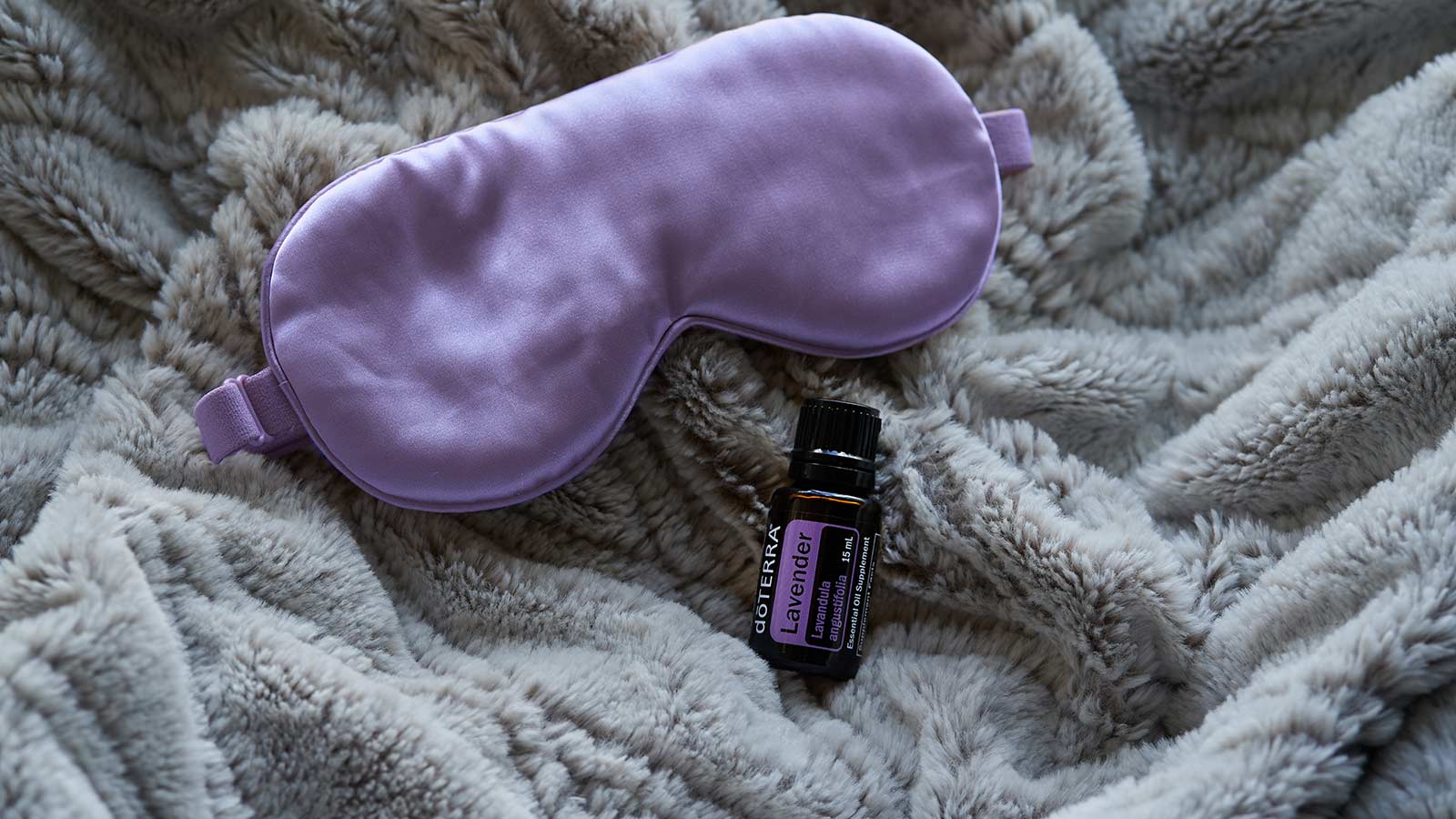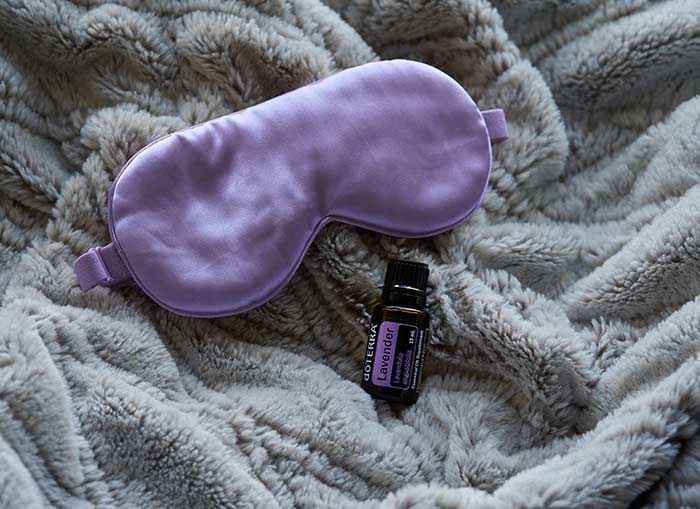Origin: a Latin derivative
meaning "Gift of the Earth."
- Shop
-
Our Story
- View Our Story Home
- Who We Are. . . .
- What We Do. . . .
- Why We Do It. . . .
-
dōTERRA[doh-teh-ruh]
How Do I Use Essential Oils for Sleep? A Complete Guide to Supporting Natural Sleep Routines


By Dr. Nicole Stevens, Vice President of Clinical Research, doTERRA
Quality sleep remains one of the most elusive yet essential components of human health. In our always-connected world, where screens glow late into the night and stress follows us into the bedroom, millions search for natural solutions to use in their evening routines. Essential oils have emerged as a popular approach, offering aromatic benefits that have been used across cultures for centuries.
The question "How do I use essential oils for my sleep routine?" reflects a growing interest in natural sleep aids. From ancient Egyptian chambers to modern bedrooms, aromatic botanicals have played a role in bedtime rituals throughout human history. Today, scientific research provides new insights into these traditional practices, while modern diffusion technology makes aromatherapy more accessible than ever.
Understanding the Role of Aroma
The connection between scent and sleep involves complex interactions. When we inhale aromatic molecules, they have a direct line in the brain, particularly the emotional control center. This direct pathway to the limbic system explains why certain scents can be influential.
The mechanism behind aromatherapy's benefits appears multifaceted. Essential oils delivered via the inhalation route may exert powerful responses because the olfactory bulb has limbic inputs in a brain region associated with memory. This connection helps explain why certain scents can trigger responses tied to memories.
Research published in multiple scientific journals has explored this phenomenon. A systematic review examining 15 quantitative studies found that a majority suggested a positive effect of essential oils, with lavender being the most frequently studied oil. The review included 11 randomized controlled trials, providing substantial evidence for aromatherapy's potential.
Key Essential Oils for Sleep Routines
Lavender: The Classic Choice
Lavender (Lavandula angustifolia) stands as the most researched essential oil for sleep applications. Multiple studies have documented its calming aroma.
The effectiveness of lavender appears linked to its chemical composition, particularly linalool and linalyl acetate. These compounds provide a strong basis for lavender's traditional use in a sleep routine.
Chamomile: Gentle and Soothing
Two varieties of chamomile - Roman and German - offer calming aromas. A blend of Roman chamomile, lavender, and neroli essential oils has been scientifically studied for its benefits in a bedtime routine. This combination had positive influences in a study of hospital patients.
Research from 2021 found that chamomile essential oil benefited 20 university students. While this was a small-scale study, it adds to the growing body of evidence supporting chamomile's traditional use for relaxation.
Bergamot: Citrus Calm
Unlike other citrus oils that tend to be energizing, bergamot offers a unique calming aroma because it has some chemical similarities to lavender. A 2019 study found that an essential oil blend of bergamot, lavender, and ylang-ylang had a positive impact.
Cedarwood: Grounding and Soothing
For those who prefer woody scents, cedarwood provides an excellent option. Cedarwood oil has a grounding aroma due to a chemical compound called cedrol.
Sandalwood: Traditional Tranquility
This woody oil has been used in meditation and spiritual practices for centuries, supporting its reputation for promoting an atmosphere of mental calm.
Methods of Application
Diffusion: The Most Popular Method
Aromatherapy diffusion represents one of the safest and most effective ways to use essential oils at nighttime. Modern diffusers use various technologies to disperse oils into the air:
Ultrasonic Diffusers: These combine water with essential oils before evaporating the oils into the air. This type provides the added benefit of humidification, which can be helpful in dry climates.
Nebulizing Diffusers: These release pure essential oil mist without water, creating a more concentrated aromatic experience.
Timing Considerations: Sleep experts recommend intermittent diffusion of 30-60 minutes on, then 30-60 minutes off. This pattern prevents habituation and reduces the risk of overexposure. Many modern diffusers include automatic shut-off features for safety and convenience.
Topical Application
When properly diluted, essential oils can be applied to the skin as part of a bedtime routine. Common application points include:
- Bottom of the feet
- Wrists and temples
- Behind the ears
- Along the spine
Aromatic Baths
Taking a bath with essential oils before bed can contribute to the relaxation factor that helps as part of a wind-down ritual before bed. Add 5-10 drops of essential oil to a cup of Epsom salts or a tablespoon of carrier oil before adding to bathwater. This method combines the benefits of aromatherapy with the sleep-promoting effects of warm water immersion.
Pillow Sprays and Linen Mists
Creating a simple evening spray offers a convenient application method. Add a few drops of essential oil to several ounces of distilled water, then spritz the mix around your bedroom, or better yet, onto your pillowcase. Include a small amount of witch hazel to help the oil and water mix properly.
The doTERRA Serenity Sleep System
At doTERRA, we've developed a comprehensive approach to sleep support through our doTERRA Serenity line. The doTERRA Serenity Restful Blend combines Lavender, Cedarwood, Coriander, Ylang Ylang, Marjoram, Roman Chamomile, Vetiver, and Sandalwood essential oils with hints of Tonka Bean and Vanilla Absolute, creating a synergistic blend designed to support your evening routine.
The doTERRA Serenity Sleep System includes three complementary products:
- doTERRA Serenity Essential Oil Blend: For aromatic use through diffusion or topical application
- doTERRA Serenity Restful Complex Softgels: Featuring Lavender essential oil, L-Theanine, and tart cherry for internal support*
- doTERRA Serenity Stick + Valerian: A convenient topical application combining the Serenity blend with valerian root
Recent epigenetic testing suggests this system supports improved sleep quality, glucose metabolism, cellular fitness and function, and healthy sleep by maintaining circadian rhythms*.
Safety Considerations for Nighttime Use
Diffuser Safety
When using essential oils overnight, safety remains paramount. As long as you're using a high-quality diffuser and high-quality, natural essential oils, there's very little risk to diffusing your oils overnight. However, several precautions enhance safety:
- Choose diffusers with automatic shut-off features
- Position diffusers away from the bed to avoid concentrated exposure
- Ensure adequate room ventilation
- Start with lower concentrations and shorter durations
Special Populations
Certain groups require extra caution with essential oil use:
Children: Use lower dilutions (0.5-1%) and gentler oils. Oils such as Lavender and Chamomile are generally considered safe options when properly diluted
Pregnancy: Consult healthcare providers before using essential oils during pregnancy or nursing.
Pets: Some essential oils can be toxic to animals. Ensure pets can leave the room if diffusing, and research pet-safe options.
Sensitive Individuals: Those with asthma, allergies, or chemical sensitivities should introduce essential oils gradually and monitor for reactions.
Creating an Effective Sleep Routine
Timing Your Aromatherapy
Research suggests beginning aromatherapy 30-60 minutes before intended sleep time. This allows your body to respond to the calming aroma while engaging in other sleep hygiene practices.
Combining Methods for Enhanced Effect
Many people find success using multiple application methods:
- Pre-Bedtime: Diffuse calming oils while preparing for bed
- Bath Time: Add oils to an evening bath 1-2 hours before sleep
- Bedtime: Apply diluted oils topically just before getting into bed
- Overnight: Use a timed diffuser for the first sleep cycle
Consistency Matters
Like any sleep intervention, consistency improves effectiveness. You can condition your brain to sleep with a certain kind of scent, creating a powerful memory association over time.
Frequently Asked Questions
Which essential oil is best for sleep?
While lavender remains the most studied and popular choice, individual responses vary. Many people find success with lavender, chamomile, bergamot, or cedarwood. Experimenting with different oils or blends helps identify personal preferences.
How long before bed should I start using essential oils?
Most experts recommend beginning aromatherapy 30-60 minutes before intended sleep time. This allows the aroma to fill the room while you complete other bedtime preparations.
Can I leave my diffuser on all night?
While possible with proper safety features, intermittent diffusion is much more effective, as well as being safer, than continuous diffusion. Consider using a timer or automatic shut-off feature.
What's the best way to apply essential oils for sleep?
No single method works best for everyone. Many people combine approaches, such as diffusing during bedtime preparation and applying diluted oils topically before sleep. Experiment to find your optimal routine.
Are essential oils safe to use every night?
When used properly with appropriate dilution and diffusion practices, most people can safely use essential oils nightly. However, taking occasional breaks prevents habituation and maintains effectiveness.
Final Thoughts for Better Sleep
The journey to better sleep through essential oils and evening routines combines ancient wisdom with modern understanding. As research continues to unveil the mechanisms behind aromatherapy, we gain new appreciation for these concentrated plant essences.
Whether you choose the classic calm of lavender, the gentle comfort of chamomile, or the grounding presence of cedarwood, essential oils offer a natural approach to supporting a healthy sleep routine. The key lies in finding the right oils, application methods, and routines that work for your unique needs.
At doTERRA, we remain committed to providing the highest quality essential oils and sleep support products. Our doTERRA Serenity Sleep System represents years of research and development, combining traditional knowledge with modern science to help you achieve the restorative rest you deserve.*
Remember, while essential oils can be powerful allies in your sleep journey, they work best as part of a comprehensive approach, including good sleep hygiene, stress management, and healthy lifestyle choices. Sweet dreams await those who take the time to create intentional, aromatic bedtime rituals.
For More Information:
To learn more about sleep and aromatherapy, we recommend exploring resources from the National Sleep Foundation and the National Association for Holistic Aromatherapy. For specific questions about doTERRA products for sleep support, visit our Sleep System page or consult with a qualified aromatherapist.
About Dr. Nicole Stevens
Dr. Nicole Stevens serves as Vice President of Clinical Research at doTERRA, where she leads scientific investigations into essential oil properties and applications. With over 25 years of experience in essential oil research, Dr. Stevens has worked in quality control laboratories in the nutraceutical industry and academic research laboratories at the University of Utah and the University of Nevada, Las Vegas (UNLV) Cancer Research Institute. Dr. Stevens earned a Bachelor of Arts degree in technical writing and a Master of Science in botany—both from Brigham Young University—and a second Master of Science in public health from Purdue University. She completed her doctorate in biochemistry and molecular biology from the University of Miami Miller School of Medicine, investigating essential oil metabolomics and mechanisms of action.
doTERRA Serenity
15 mL
Serenity Sleep Softgels
Serenity + Valerian Stick
1 stick
*These statements have not been evaluated by the Food and Drug Administration. This product is not intended to diagnose, treat, cure, or prevent any disease.


